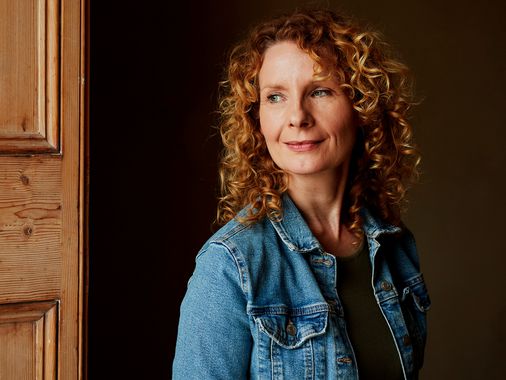
If you’re exhausted at the end of the day and not that keen on making dinner, if you think it’s drudgery to put a meal on the table every night, read on. Celebrated British author Bee Wilson has some advice for you. The first piece may be hard to grasp: She says that the most important element in any dish isn’t some hint of spice or seasoning. It’s you, the cook. You are the part of cooking that matters the most. Find what you like to do and do it. It doesn’t really matter what anyone else thinks.
For many of us, this insight alone will be utterly liberating. Wilson’s “The Secret of Cooking: Recipes for an Easier Life in the Kitchen” is more than just another cookbook that aims to cut down your prep time. She focuses like a laser beam on the things that make capable cooks capable. She really understands what home cooks are up against.
Who is this woman who may transform how you think about cooking? Wilson and her three children live in Cambridge, England (her doctorate in history comes from the university there). Her work appears in The Wall Street Journal, The Guardian, the Financial Times, and the London Review of Books. This is her first book of recipes. Previous volumes have addressed historical fraud in food, a history of kitchen tools, and the psychology of eating.
About that nightly task: “What trips us up on the way to the kitchen is time, money, guilt, brain space, and other people,” writes Wilson, “and yet, for some reason, most cookbooks don’t say anything about how to handle these vital ingredients.”
Other cooks Wilson talked to told her they disliked shopping, that cooking took up too much “mental space” with little reward, that their children were picky eaters, that when life got hectic they relied on takeout. One of the book’s chapters is entitled, “Cooking is mostly about washing dishes.”
She started carrying a notebook around asking people for their cooking tips and secrets. “I unearthed tricks that mean I can get dinner on the table even when the spirits are flagging and stocks are low.”
Wilson had plenty of experience with feeling down. As she was writing the book, her husband of 23 years left the family (this is in the book’s introduction). It was the middle of the pandemic so she couldn’t visit her mother in a care home or even hug a friend.
She found solace in the kitchen, she writes, which anchored her. “When you feel you are falling apart, cooking something familiar can remind you of your own competence. I have cooked my way through many bleak afternoons, but it was only cooking for months in a state of heartbreak during the pandemic that taught me just how sanity-giving it could be,” she wrote in an essay in The Guardian.
One of Wilson’s recipes is a revelation, a pasta dish cooked in a deep skillet that’s been going around social media — at first she was skeptical — but in her hands is a gem. You put a fistful of dry pasta in the pan with boiling water, mushrooms, parsley, garlic, and wine. Bring it back to a boil, then, with the lid on, cook for five minutes, stirring often. Uncover and cook a little more. Add cream, a squeeze of lemon, and Parmesan. It’s really the risotto method, she writes, producing an exceptional dish with highly flavored pasta. It’s counterintuitive but turns out perfectly.
More ideas: Start roasting that chicken in a cold oven. If you let the bird and the heat come up to temp together, the meat will be very tender. (It works!)
Any dish benefits from a little crunch. Crispy bacon sprinkled on top is one way, but Wilson also likes the idea of cutting up a little of the raw vegetable and sprinkling it on the cooked one (raw fennel on roasted fennel). You can also use fried breadcrumbs, toasted nuts, pumpkin seeds fried with salt.
If your baguette is rock hard, run it under a cold tap and pop it into a 425-degree oven, directly on the oven rack, and you’ll bring it back to life.
Add a little water to the vinaigrette to soften the vinegar and make the dressing smooth.
When you’re making an omelet and want to significantly improve the texture, add a little Dijon mustard. It makes the omelet both tender and tangy.
Save the cooking water from dried beans (you don’t need to soak them first). Use the water in the dish you’re making.
Put pound cake in a cold oven, too. The one she uses for this method is flavored with lime, ginger, cinnamon, nutmeg, and cloves.
She has many Indian recipes, others borrow elements of Turkish and Persian cooking. A ragu is made with eggplant, black beans, tomatoes, and chipotle; another with lentils, mushrooms, and tomatoes. She has recipes — and she thinks you should too — for friends who are gluten-free, dairy-free, vegetarian, and vegan. Recipes come from her own imagination, trial and error, and from some authors she admires.
Bee Wilson is a dreamy writer. Photographer Matt Russell, whose stunning, beautifully lit shots appear throughout the book, is her equal. “The Secret of Cooking” will build on what you already know in the kitchen, help you refine how you think about food, and very likely take your kitchen confidence — and the pleasure you get from cooking — to new heights.
Sheryl Julian can be reached at [email protected].
